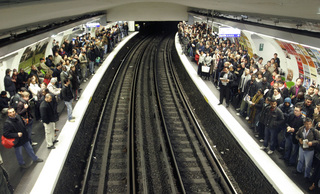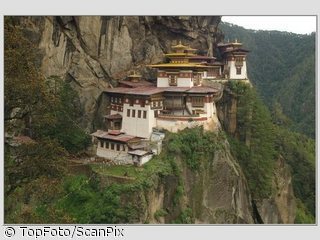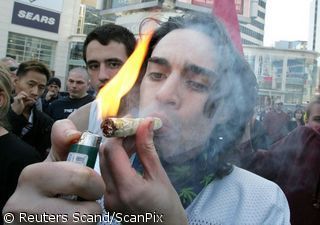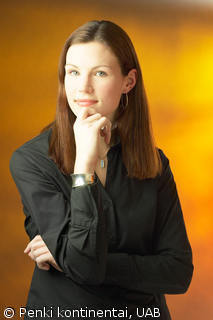At the World Social Forum in Porto Alegre, Brazil, the demonstrators are having a more successful time of it
Published:
31 January 2001 y., Wednesday
At the World Social Forum in Porto Alegre, Brazil, the demonstrators are having a more successful time of it — and they’re on the same side as the conference participants. The raid began around dusk on Thursday. A convoy of 18 buses rolled up to the gates of a farm in Não Me Toque, a drowsy farm-belt town in southern Brazil. The handful of security guards on duty stood by helplessly as hundreds of protestors spilled out of the buses, toppled the two meter fence and streamed over the property, waving flags and cheering as they marched.
OWNED BY MONSANTO, the American agricultural and chemical combine, the farm was an agricultural research station dedicated to experimenting with strains of genetically modified soybeans and other crops. Although Brazil banned widespread planting of GMOs two years ago, experimental farms such as Monsanto’s are allowed. But to the protestors — who ranged from landless peasants to militant Catholic youth — these fields nurturing dubious “Frankenfoods” were a powerful emblem of global corporate evil in their back yards. They camped out in the fields and on Friday morning, with television cameras rolling, ripped the crops out of the field like a human threshing machine. By the time the military police brigades stepped in, the Monsanto field was nothing but genetically modified compost. At least two other protests against GMOs were staged that morning, one in Porto Alegre, some 300 kilometers away, and another in Recife, in northeast Brazil, where one farmer died and several more were injured as 500 protestors clashed with police. The scattered demonstrations had a common thread.This was “one more blow in the urgent fight against multinational corporations,” said Jose Bové, the French farm leader and heralded McDonald’s basher, who had flown to Brazil to lend his now patented protest voice to the preferred enemy of the day: globalization.
Šaltinis:
NEWSWEEK
Copying, publishing, announcing any information from the News.lt portal without written permission of News.lt editorial office is prohibited.
The most popular articles
 75 years after Moscow first opened its underground train system, Muscovites can ride a restored vintage train.
more »
75 years after Moscow first opened its underground train system, Muscovites can ride a restored vintage train.
more »
 A glacier melt threatens to cause massive flooding and destroy a centuries old monastic fortress in the remote country of Bhutan.
more »
A glacier melt threatens to cause massive flooding and destroy a centuries old monastic fortress in the remote country of Bhutan.
more »
 What do countries as geographically diverse as Saudi Arabia, Uganda and Jamaica have in common? All of them criminalised homosexuality.
more »
What do countries as geographically diverse as Saudi Arabia, Uganda and Jamaica have in common? All of them criminalised homosexuality.
more »
 Human rights is a key issue for the European Parliament and MEPs Monday took a first look at what the European Union did last year, when they discussed the EU annual report on human rights in the world.
more »
Human rights is a key issue for the European Parliament and MEPs Monday took a first look at what the European Union did last year, when they discussed the EU annual report on human rights in the world.
more »
 Researchers found high levels of mecury in a Japenese dolphin-hunting town, but say the mecury has no ill effects.
more »
Researchers found high levels of mecury in a Japenese dolphin-hunting town, but say the mecury has no ill effects.
more »
 Crowds of Mexicans marched peacefully through the capital city on Saturday demanding the legalisation of marijuana.
more »
Crowds of Mexicans marched peacefully through the capital city on Saturday demanding the legalisation of marijuana.
more »
 Prisoners are reported to have dramatic improvements in behaviour after pets are introduced in a new scheme.
more »
Prisoners are reported to have dramatic improvements in behaviour after pets are introduced in a new scheme.
more »
 Israeli Ultra-Orthodox MPs are lining up against activists proposing a total ban on furs, saying traditional fur hats are an important part of their religious tradition.
more »
Israeli Ultra-Orthodox MPs are lining up against activists proposing a total ban on furs, saying traditional fur hats are an important part of their religious tradition.
more »
 EU Member States should organise social protection, including at least 14 weeks' maternity allowance, for self-employed women and self-employed men's wives or life partners, in accordance with national laws, said the Women's Rights Committee on Tuesday.
more »
EU Member States should organise social protection, including at least 14 weeks' maternity allowance, for self-employed women and self-employed men's wives or life partners, in accordance with national laws, said the Women's Rights Committee on Tuesday.
more »
 How are the European Parliament, the European Commission and other parts of the European Union supposed to interest people and explain their work?
more »
How are the European Parliament, the European Commission and other parts of the European Union supposed to interest people and explain their work?
more »